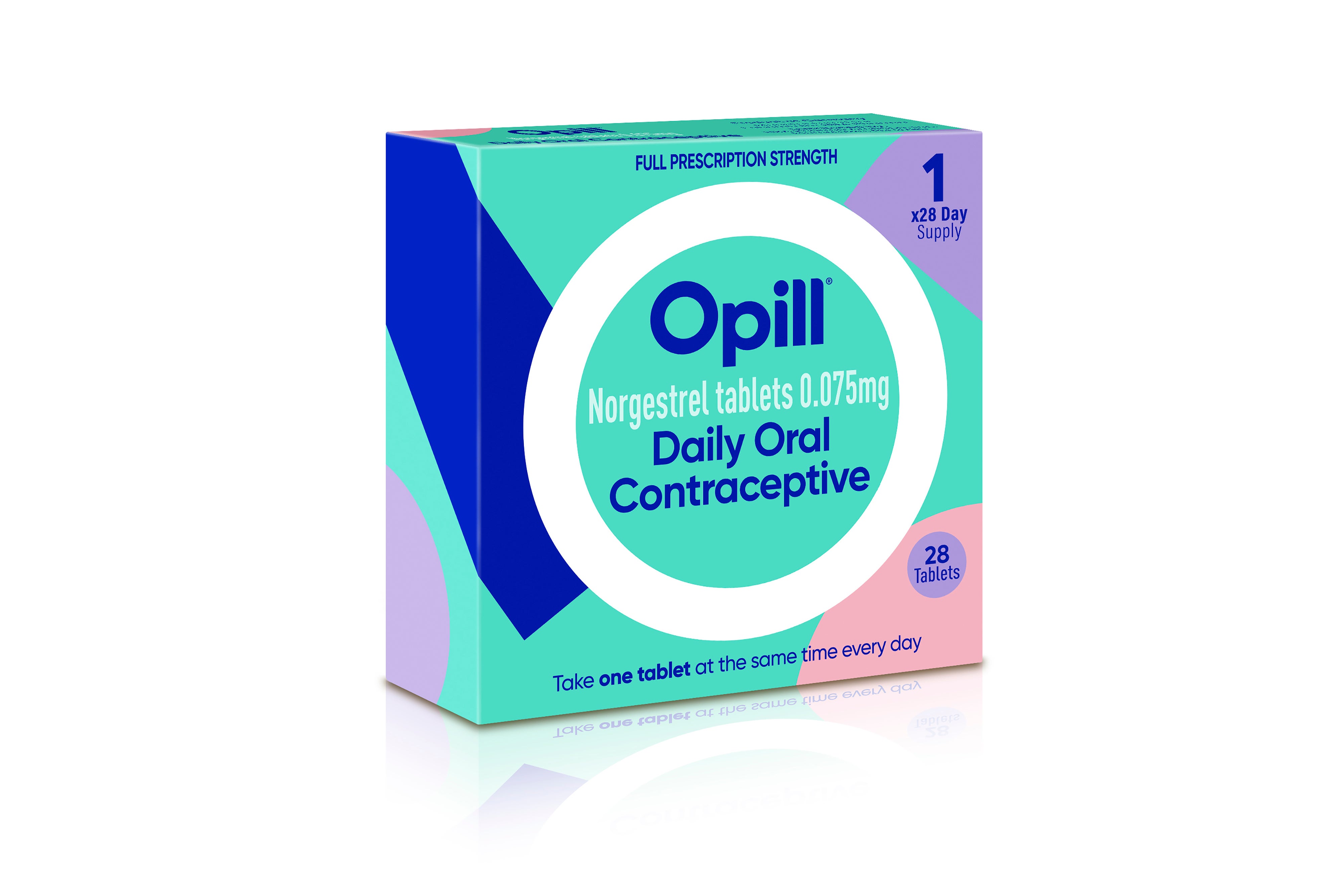First over-the-counter birth control pill gets FDA approval
U.S. officials have approved the first over-the-counter birth control pill, a major change that will broaden access for women and teenagers

U.S. officials have approved the first over-the-counter birth control pill, which will let American women and girls buy contraceptive medication from the same aisle as aspirin and eyedrops.
The Food and Drug Administration said Thursday it cleared Perrigo’s once-a-day Opill to be sold without a prescription, making it the first such medication to be moved out from behind the pharmacy counter. The company won’t start shipping the pill until early next year, and there will be no age restrictions on sales.
Hormone-based pills have long been the most common form of birth control in the U.S., used by tens of millions of women since the 1960s. Until now, all of them required a prescription.
Medical societies and women’s health groups have pushed for wider access, noting that an estimated 45% of the 6 million annual pregnancies in the U.S. are unintended. Teens and girls, women of color and those with low incomes report greater hurdles in getting prescriptions and picking them up.
Some of the challenges can include paying for a doctor's visit, getting time off from work and finding child care.
“This is really a transformation in access to contraceptive care,” said Kelly Blanchard, president of Ibis Reproductive Health, a non-profit group that supported the approval. “Hopefully this will help people overcome those barriers that exist now.”
Ireland-based Perrigo did not announce a price. Over-the-counter medicines are generally much cheaper than prescriptions, but they aren’t covered by insurance.
Many common medications have made the switch to non-prescription status in recent decades, including drugs for pain, heartburn and allergies.
Perrigo submitted years of research to FDA to show that women could understand and follow instructions for using the pill. Thursday’s approval came despite some concerns by FDA scientists about the company's results, including whether women with certain underlying medical conditions would understand they shouldn't take the drug.
FDA’s action only applies to Opill. It’s in an older class of contraceptives, sometimes called minipills, that contain a single synthetic hormone and generally carry fewer side effects than more popular combination hormone pills.
But women’s health advocates hope the decision will pave the way for more over-the-counter birth control options and, eventually, for abortion pills to do the same.
That said, FDA’s decision has no relation to the ongoing court battles over the abortion pill mifepristone. The studies in Perrigo’s FDA application began years before the Supreme Court’s reversal of Roe v. Wade, which has upended abortion access across the U.S.
With some states curtailing women’s reproductive rights, the FDA has faced pressure from Democratic politicians, health advocates and medical professionals to ease access to birth control. The American Medical Association and the leading professional society for obstetricians and gynecologists backed Opill's application for over-the-counter status.
An outside panel of FDA advisers unanimously voted in favor of the switch at a hearing in May where dozens of public speakers called for Opill’s approval.
Dyvia Huitron was among those who presented, explaining how she has been unable to get prescription birth control more than three years after becoming sexually active. The 19-year-old University of Alabama student said she still isn’t comfortable getting a prescription because the school’s health system reports medical exams and medications to parents.
“My parents did not let me go on the pill,” Huitron said in a recent interview. “There was just a lot of cultural stigma around being sexually active before you’re married.”
While she uses other forms of contraception, “I would have much preferred to have birth control and use these additional methods to ensure that I was being as safe as possible.”
Huitron spoke on behalf of Advocates for Youth, one of the dozens of groups that have pushed to make prescription contraceptives more accessible.
The groups helped fund some of the studies submitted for Opill and they encouraged HRA Pharma, later acquired by Perrigo, to file its application with the FDA.
Advocates were particularly interested in Opill because it raised fewer safety concerns. The pill was first approved in the U.S. five decades ago but hasn’t been marketed here since 2005.
“It’s been around a long time and we have a large amount of data supporting that this pill is safe and effective for over-the-counter use,” said Blanchard, of Ibsis Reproductive Health.
Newer birth control pills typically combine two hormones, estrogen and progestin, which can help make periods lighter and more regular. But their use carries a heightened risk of blood clots and they shouldn't be used by women at risk for heart problems, such as those who smoke and are over 35.
Opill has only progestin, which prevents pregnancy by blocking sperm from reaching the cervix. It must be taken around the same time daily to be most effective.
In its internal review published in May, the FDA noted that some women in Perrigo’s study had trouble understanding the drug's labeling information. In particular, the instructions warn that women with a history of breast cancer should not take the pill because it could spur tumor growth. And women who have unusual vaginal bleeding are instructed to talk to a doctor first, because it could indicate a medical problem.
Perrigo executives said the company will spend the rest of the year manufacturing the pill and its packaging so it can be available in stores nationwide and online by early next year.
___
Follow Matthew Perrone on Twitter: @AP_FDAwriter
___
The Associated Press Health and Science Department receives support from the Howard Hughes Medical Institute’s Science and Educational Media Group. The AP is solely responsible for all content.
Subscribe to Independent Premium to bookmark this article
Want to bookmark your favourite articles and stories to read or reference later? Start your Independent Premium subscription today.
